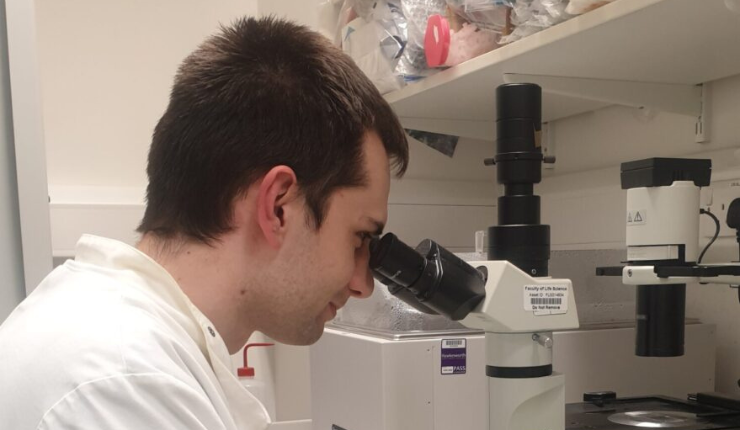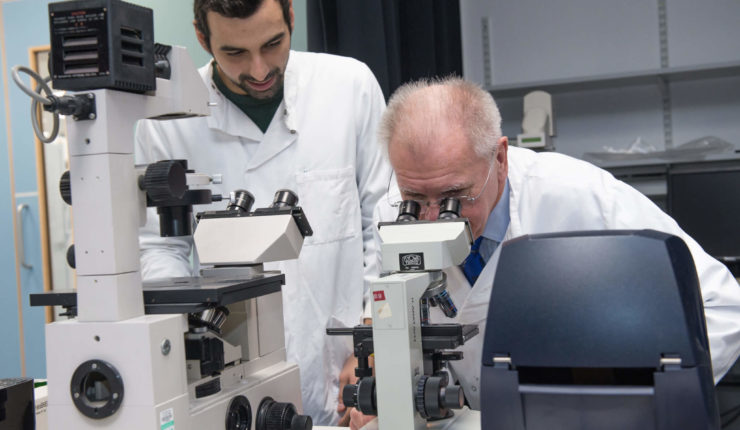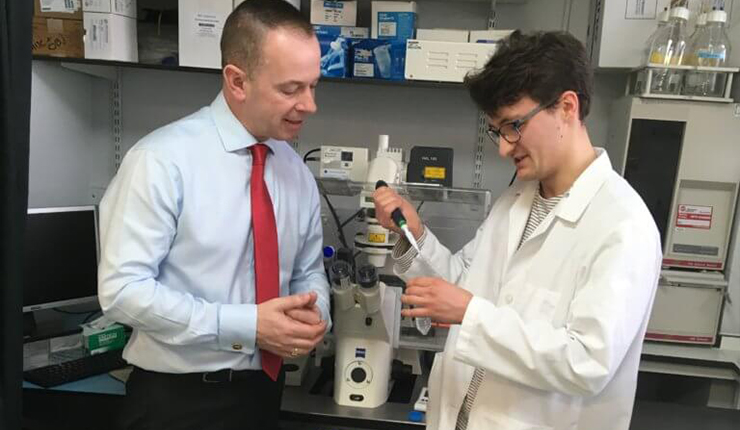Medical research
New treatments for diabetes on the horizon
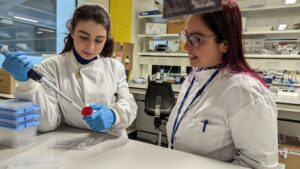
There will be hope for new treatments and better care for people with or at risk of diabetes, as PhD students receive a research grant of £315,000 from the MCF in partnership with Diabetes UK.
Over 4.9 million people in the UK are living with diabetes which, if untreated, can lead to health complications, like eye, foot or heart problems. Around 90 per cent of people with diabetes have type 2, and it is predicted that over 850,000 people have type 2 diabetes and are unaware of it. The series of research by the PhD students aimed to improve the treatment and diagnosis of different forms of diabetes, and protect people with the condition from its long-term complications, tackle some of the problems that diabetes can cause and improve the lives of many living with the condition.
Cells in our pancreas have a molecule on their surface, called GLP-1R, which tells them to release insulin. Some people have genetic variations that impact GLP-1R, allowing it to do its job better. These variants appear to protect people from developing type 2 diabetes and heart disease.
Liliane El Eid, from Imperial College London, has started her PhD studentship and has started to explore these genetic variants, to understand how it helps to protect against type 2 diabetes. She has found that signals from GLP-1R are stronger when inside the cell, rather than on the surface of the cell and will be delving into these findings for the remainder of her studentship. In understanding more about GLP-1R, scientists could develop new drugs in the future that could help to ‘switch on’ insulin production and in turn prevent type 2 diabetes.
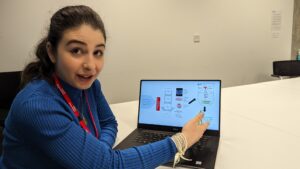
PhD student, Liliane El Eid
Thanks to funding from the Freemasons, I’ve been able to conduct my work. Without their generous support, I would have been unable to complete important research testing to understand how we can prevent type 2 diabetes and potentially help many around the world.
Oliver Richards at Swansea University looked to improve the screening process for a type of diabetes that can develop during pregnancy, called gestational diabetes. Gestational diabetes occurs when pregnancy hormones make it hard for the body to use insulin properly, resulting in high blood sugar levels. While gestational diabetes usually goes away after giving birth, it can increase risk of type 2 diabetes in later life. Current screening for this form of diabetes is time-consuming and expensive, as mothers must fast overnight and be in hospital for several hours.
Oliver worked with Professor Thornton to develop a quicker, cheaper and more informative test for expecting mothers. This could reduce the time and cost of diagnosis, allowing the NHS to screen more pregnant women who are more likely to be at risk for gestational diabetes.
This research found that the new test works effectively with a non-invasive finger prick blood test, which is less invasive for the mother and easier to administer for hospital staff, making the testing process more time and cost effective. Moreover, this new method could provide further health information that could help to decrease the risk of pregnant women developing type 2 diabetes in later life.
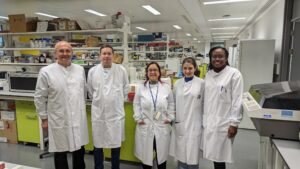
We’re grateful that the Masonic Charitable Foundation has joined Diabetes UK on our mission to create a world where diabetes can do no harm. This partnership has allowed us to support exceptional scientists starting out in their career, helping to nurture the diabetes research rising stars of the future. The projects the MCF has funded will help to make strides across a wide range of research, from diabetes-related kidney problems, to preventing type 2 diabetes and screening for gestational diabetes.
Another PhD student, Beth Williams, was in the process of understanding how communication between kidney cells change in diabetes. Beth has identified that disrupted cell-to-cell communication in the kidney, brought about by high sugar levels, can trigger inflammatory damage throughout the body switching on a protein in the body, called TGF-b1, which is harmful to kidney cells. Early evidence suggests two treatment options could help to stop this protein.
We’re really pleased to be in partnership with Diabetes UK, who are the leading charity in the UK for people living with diabetes. In supporting future scientists through their research, we can have a major impact on the lives of many having to manage diabetes.
